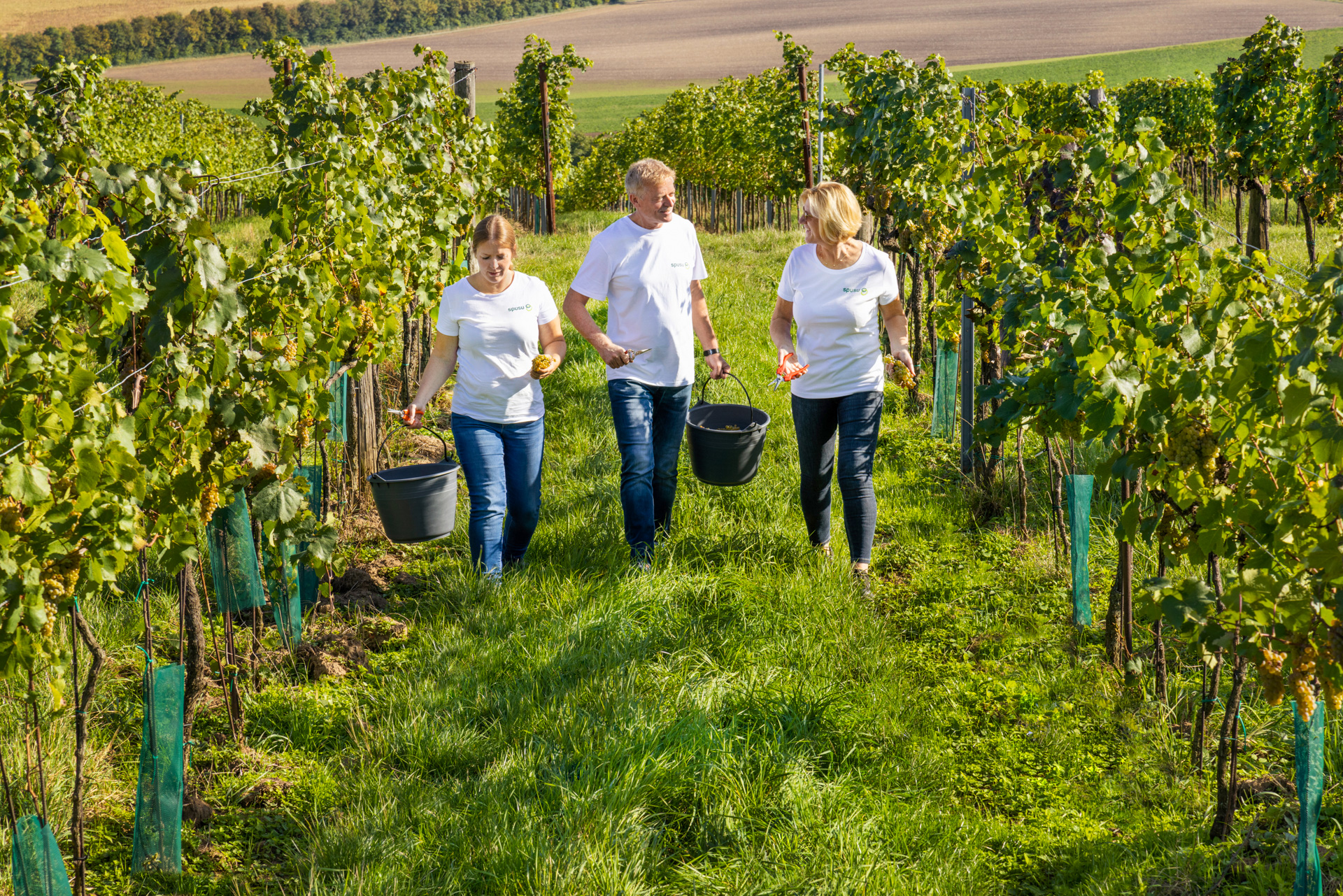This website uses cookies so that we can provide you with the best user experience possible. Cookie information is stored in your browser and performs functions such as recognising you when you return to our website and helping our team to understand which sections of the website you find most interesting and useful.
Austria’s spusu Wein bets on Piwi varieties for sustainable plans
As it plants its first vineyards, spusu Wein is promoting fungal resistant Piwi varieties as the future of viticulture.

Among the many current sustainability buzzwords – regenerative viticulture, carbon footprints, eco-savvy marketing – Piwi varieties are flying under the radar. It may be in part the name. For English-speaking markets, the original German word ‘Pilzwiderstandsfähig’ meaning ‘fungal resistant’ is rather a mouthful. Yet spusu Wein, a successful newcomer to Austria’s wine scene, believes these Piwi varieties are key to sustainable viticulture in the years ahead.
Fungal diseases, among them black rot, powdery mildew and downy mildew, are among the largest threats to a successful vintage. They can decimate crops and, once they take hold, the damage is difficult to contain. Producers therefore rely on a number of measures to mitigate the risk, including canopy management, removing diseased sections and fungicidal sprays.
Instead of relying on these interventions, Piwi varieties have been bred to resist fungal diseases. Each is bred as a cross between different Vitis species. The Vitis vinifera parent contributes its vinous characteristics, while the other species, usually a North American vine or existing cross, is selected for its resistant properties. The process, which takes decades, results in a brand new grape variety.
For spusu Wein, the environmental benefits are manifold. Most obviously, Piwi varieties substantially reduce the need for fungicidal treatments. These sprays can easily enter into the local ecosystem, affecting other plants, running into waterways and damaging animals further up the food chain. Fewer sprays means fewer harmful chemicals in the local environment.
However, there are less immediately apparent benefits. As individual producers look to reduce their carbon footprint, limiting fungicidal sprays means less CO2 emitted in fungicide production. It also means fewer passes are needed with a tractor. This has the dual effect of reducing a property’s direct emissions and preventing the harmful compaction of vineyard soils.
Impressively, spusu Wein has committed to sustainability through Piwi wines very early in its winemaking journey. The producer only released its first wines last year, using grapes sourced from partner vineyards, but it has already pressed forward with its Piwi plans. Last month, spusu Wein began planting Piwi varieties on its own land, hoping to produce its first wines with the two hectares in three years. The plan is to plant around two hectares of PIWI wines every year.
The varieties, primarily Donauveltliner, Donauriesling and Souvignier Gris, have not only been selected for their environmental credentials; the winemaking team is also excited for their quality potential. Particularly by leaning into their structured, phenolic qualities, spusu Wein is excited to promote a new range of high-quality Austrian wines over the coming years.
Until then, the producer is focusing on an existing range of organic wines. Designed to demonstrate both excellence and the authentic styles of the Weinviertel region, the wines have made a significant impact in the last year. One of them, spusu ‘The First’ Gemischter Satz, even won a top Master medal at The Spring Tasting 2024.
Five of the wines, and plenty of discussion of the new plantings, will be presented at VieVinum in the coming days. spusu Wein may believe that Piwi varieties are the future, but the producer has much to be excited about in the meantime.
spusu Wein will be presenting its wines from 25-27 May at VieVinum, Vienna. The team is looking forward to welcoming visitors at table number 334 and is happy to talk about the exciting future ahead.

